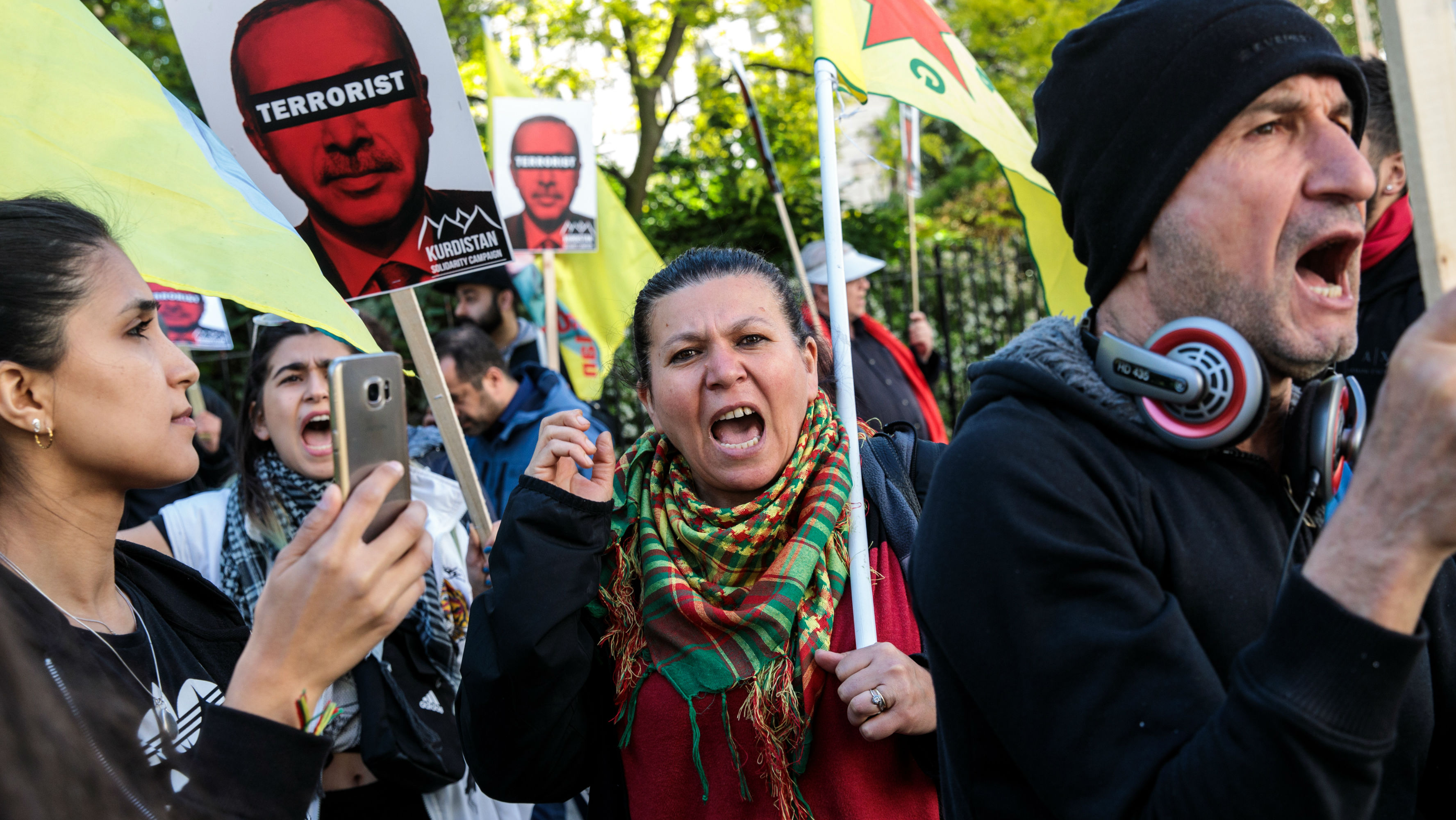Does the UK really want Turkey’s Erdogan as an ally?
Turkish president’s visit described as ‘the cooing up of two EU castaways’

A free daily email with the biggest news stories of the day – and the best features from TheWeek.com
You are now subscribed
Your newsletter sign-up was successful
Turkey’s President Recep Tayyip Erdogan praised Britain as “an ally and a strategic partner but also a real friend” as he began a three-day state visit yesterday.
Erdogan is scheduled to meet the Queen and Prime Minister Theresa May during the trip, which has been condemned by human rights campaigners.
Speaking in Reading at the annual Tatlidil British-Turkish forum, Erdogan said a strategic partnership between Turkey and the UK was a “necessity” for the interests of both countries.
The Week
Escape your echo chamber. Get the facts behind the news, plus analysis from multiple perspectives.

Sign up for The Week's Free Newsletters
From our morning news briefing to a weekly Good News Newsletter, get the best of The Week delivered directly to your inbox.
From our morning news briefing to a weekly Good News Newsletter, get the best of The Week delivered directly to your inbox.
As the UK prepares to leave the European Union, the Turkish leader wants to increase trade and security ties, saying Turkey is ready to “cooperate more with the UK… post-Brexit in every field”.
But does the UK really want such a close partnership?
The visit may be viewed as “the cooing up of two EU castaways”, Faruk Logoglu, a former Turkish ambassador to the US, told The Times.
The UK has lost favour over Brexit, while Erdogan has faced strong criticism from EU leaders over his response to a failed coup in 2016: tens of thousands of public employees were fired, thousands more people jailed without formal indictments, and the media muzzled.
A free daily email with the biggest news stories of the day – and the best features from TheWeek.com
General elections are scheduled to take place in Turkey on 24 June, when Erdogan is expected to radically increase his power. The vote will be held under a state of emergency that limits freedom of expression. “A photo opportunity with the Queen will surely be given the expected all-favourable spin by the government-controlled media,” says Logoglu.
Despite criticism of his rule, the UK has maintained close ties with Erdogan’s government, says The Times, signing defence deals worth a total of about £750m since the failed putsch.
Logoglu argues that it is “post-Brexit UK that stands to make real gains from this visit, with new lucrative contracts”. Erdogan has said he wants to boost trade from $16bn (£11.8bn) to $20bn (£14.7bn) a year.
Turkey’s long borders with Syria and Iraq also make the country a “vital ally for the UK in counterterrorism and intelligence-sharing”, says the Financial Times.
But “human rights campaigners, opposition politicians and exiled Turkish businessmen have called on Britain to denounce the Turkish government’s systematic arrest of journalists, opposition politicians and human rights campaigners in an anti-terrorist dragnet”, The Guardian reports.
Liberal Democrat leader Sir Vince Cable has accused May of “essentially rolling out the red carpet for a man with a disregard for human rights, who is responsible for alarming oppression and violence”.
Cable has called on the Tory government to “use this visit to speak out against Erdogan’s unacceptable disregard for liberal, democratic values”.
Diplomats says British ministers regularly raise concerns about Turkey in private. Nevertheless, Green Party leader Caroline Lucas says that Erdogan’s visit makes the UK look “increasingly willing to cosy up to repressive leaders from across the world”.
-
 What is the endgame in the DHS shutdown?
What is the endgame in the DHS shutdown?Today’s Big Question Democrats want to rein in ICE’s immigration crackdown
-
 ‘Poor time management isn’t just an inconvenience’
‘Poor time management isn’t just an inconvenience’Instant Opinion Opinion, comment and editorials of the day
-
 Bad Bunny’s Super Bowl: A win for unity
Bad Bunny’s Super Bowl: A win for unityFeature The global superstar's halftime show was a celebration for everyone to enjoy
-
 Epstein files topple law CEO, roil UK government
Epstein files topple law CEO, roil UK governmentSpeed Read Peter Mandelson, Britain’s former ambassador to the US, is caught up in the scandal
-
 Iran and US prepare to meet after skirmishes
Iran and US prepare to meet after skirmishesSpeed Read The incident comes amid heightened tensions in the Middle East
-
 Israel retrieves final hostage’s body from Gaza
Israel retrieves final hostage’s body from GazaSpeed Read The 24-year-old police officer was killed during the initial Hamas attack
-
 China’s Xi targets top general in growing purge
China’s Xi targets top general in growing purgeSpeed Read Zhang Youxia is being investigated over ‘grave violations’ of the law
-
 Panama and Canada are negotiating over a crucial copper mine
Panama and Canada are negotiating over a crucial copper mineIn the Spotlight Panama is set to make a final decision on the mine this summer
-
 Why Greenland’s natural resources are nearly impossible to mine
Why Greenland’s natural resources are nearly impossible to mineThe Explainer The country’s natural landscape makes the task extremely difficult
-
 Iran cuts internet as protests escalate
Iran cuts internet as protests escalateSpeed Reada Government buildings across the country have been set on fire
-
 US nabs ‘shadow’ tanker claimed by Russia
US nabs ‘shadow’ tanker claimed by RussiaSpeed Read The ship was one of two vessels seized by the US military